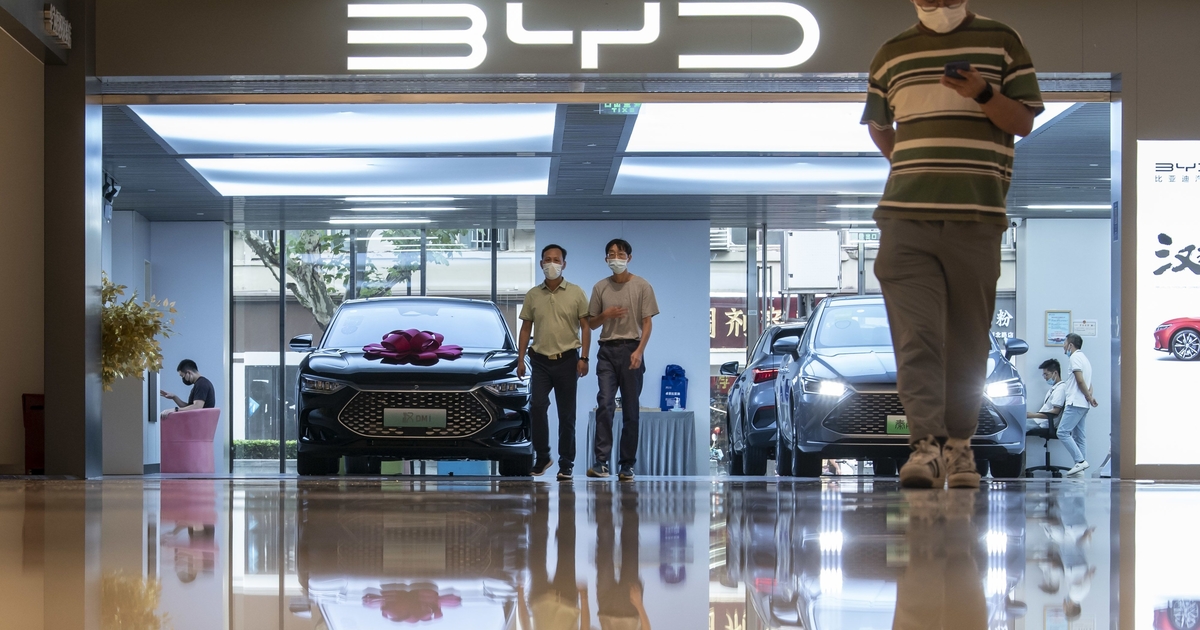
Chinese new-vehicle dealers are struggling to stay afloat after efforts to clear gasoline-fueled cars before tougher emissions standards taking effect later this year are upended by a bruising price war.
Auto sales — especially of internal combustion engine light vehicles — haven’t bounced back from pandemic restrictions even with hefty discounts doled out by major carmakers including BYD Co., Chery Auto, Toyota Motor Corp. and Ford Motor Co. New-vehicle sales fell 20 percent in the first two months of the year, with deliveries of gasoline-fueled cars dropping 30 percent.
With the next phase of China’s emissions standards to be implemented in July, dealers could be left with hundreds of thousands of cars that would become non-compliant, according to a March 23 article by the country’s Auto Dealers Chamber of Commerce, which has since been deleted from its WeChat account. The price war may have brought higher foot traffic, but showrooms that didn’t offer discounts saw sales fall significantly, the article said.
Dealers already faced a challenging time last year, when COVID lockdowns disrupted auto production and sales. At one stage, not a single car was sold in Shanghai for a month. Just 20 percent of dealers operated at a profit last year, and more than 2,000 closed, according to the Chamber of Commerce.
The chamber, which counted over 8,000 dealers as members as of 2019, according to its website, didn’t respond to emailed requests for comment on why the article was deleted. Calls to its head office went unanswered.
“Old tricks aren’t working the way they did. These band-aid measures to fix structural issues in the market clearly aren’t sustainable and can’t last for too long,” Bloomberg analyst Anjani Trivedi said. “Cutting prices and doling out incentives will raise costs and eat into already-thinning margins. But perhaps the painful fallout is what’s needed.”
To give dealers more breathing room, the chamber called for the new emissions standards be delayed until January 2024, and urged automakers to stop producing vehicles that don’t comply with the new measures.
Another trade group, the China Automobile Dealers Association, also sounded the alarm. While price wars have occurred in the past, this one is particularly disruptive because outside entities such as provincial governments have joined in with subsidies to support local carmakers, it said Friday.
The various levels of government should instead launch fiscal and financial measures that will lift overall spending and ensure a fair and orderly car market, the article said. Auto manufacturers need to change their traditional production models to follow the changing tastes of the market and set up compensation for dealers who may need to clear stock, the association said.